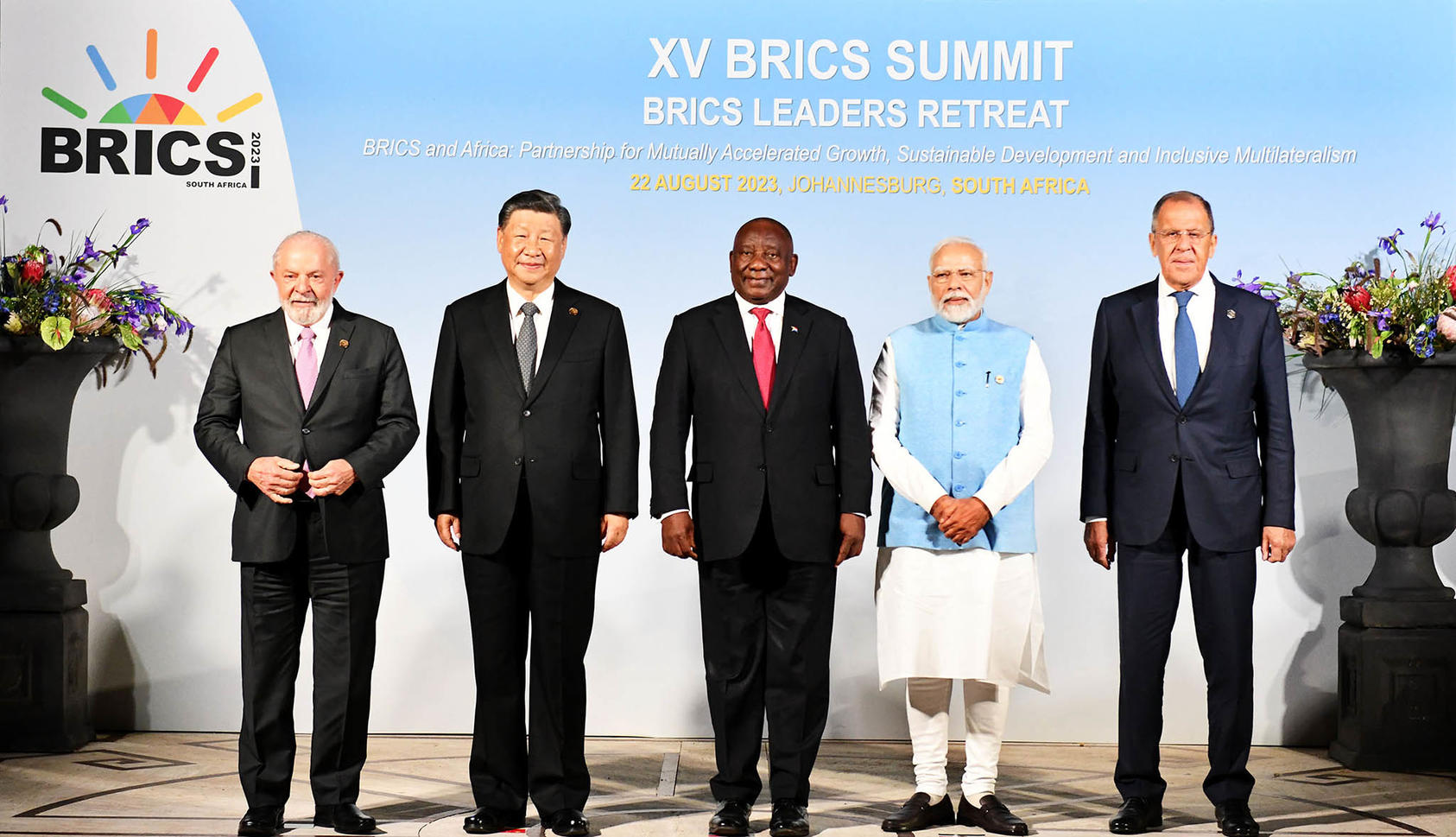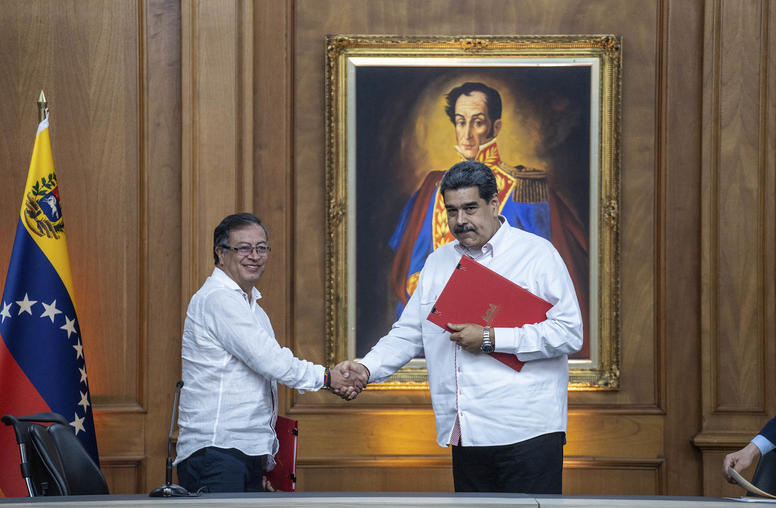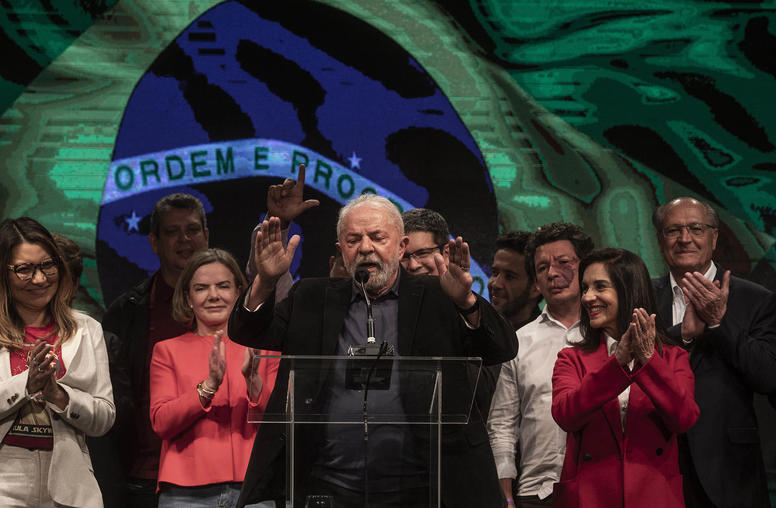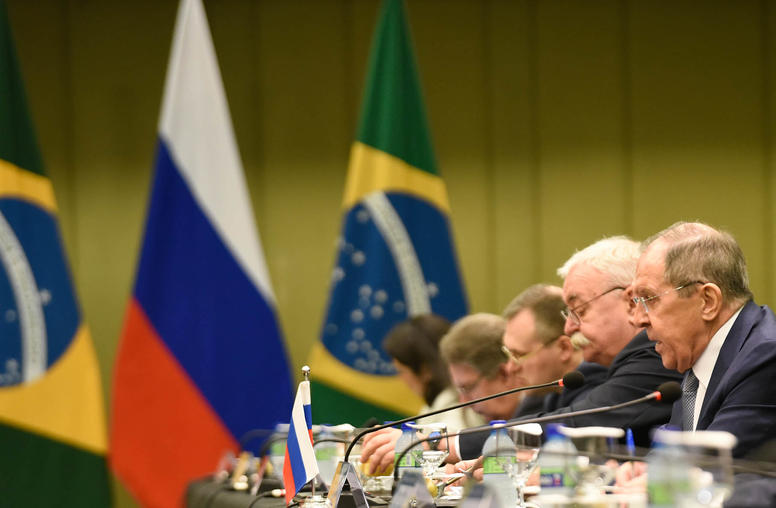Why the BRICS Summit Could Be a Big Deal
The leaders of the so-called BRICS (Brazil, Russia, India, China and South Africa) are gathering in Johannesburg this week in what is likely to be pivotal meeting for the bloc’s trajectory. Russian President Vladimir Putin will not be attending due to an International Criminal Court warrant. But Moscow and Beijing will be pushing for the group’s expansion in a bid to strengthen the bloc as an alternative to the U.S.-led liberal international order. Over 40 countries have applied to join. But there is division within the five members. Brazil and India fear that expansion will dilute their influence and impact their nonaligned foreign policies. China and Russia, on the other hand, would like to position BRICS as a counterweight to the Group of 7 (G7) and other Western-led alignments.

Although not formally on the agenda of the summit, “de-dollarization” is a priority issue for many BRICS countries and the dozens of other states in attendance. Some have suggested that BRICS establish its own currency to curb dependence on the U.S. dollar — but most observers see that as unviable. What is more likely is that BRICS countries and other partners will continue the trend of trading in their own local currencies instead of using the dollar. The BRICS bank already lends in Chinese yuan and announced yesterday that it would also do so in South African and Brazilian currencies.
USIP’s Andrew Cheatham and Adam Gallagher explain why this summit is important, what an expansion of the bloc would mean for its future and what this all means for the United States.
Why is this BRICS summit important and how does it figure into major geopolitical trends?Cheatham: Many around the world have their eyes on the ongoing BRICS summit in Johannesburg, in part because together the BRICS nations encompass a population of 3.5 billion, accounting for a substantial segment of global emerging markets. Originally the countries came together as a grouping in the late 2000s to coalesce around issues of finance, development and trade. However, the bloc has now grown to symbolize one side of the ledger in a world of bitter strategic rivalry and growing multipolarity.
In this narrative, the G7 advanced economies — Canada, France, Germany, Italy, Japan, the United Kingdom and the United States (and the European Union) — are on the opposing side. Although Brazil has taken issue with this anti-Western framing, great attention to the BRICS around the world has helped China and Russia’s rhetorical campaign to pin “the West” against “the rest.” With Russia’s illegal war of aggression raging in Ukraine and escalating tensions between China and the United States, countries are increasingly called on to take positions siding with one camp or the other.
This is not, however, a repeat of the Cold War. So-called “middle powers” have a much greater share of overall global influence in today’s international politics. The BRICS are often seen as a key space for such powers, particularly non-Western states in the Global South.
BRICS expansion is one of the big themes of the summit. What would the group’s expansion signal about its trajectory?Cheatham: Over 40 countries have requested to join the BRICS. With membership, countries are likely to enjoy a special relationship with the members of New Development Bank, which was founded by the BRICS nations and provides financing for many states searching for alternatives to the Western-dominated Paris Club. Additionally, many prospective members are hoping to have influence within a rising coalition of non-Western states with ambitions to reshape the global order.

For almost 80 years the conventional pathway for affecting change and progress in the international system was through the multilateral institutions themselves. Today, however, we are seeing a new wave of “minilateralism” — a style of diplomatic engagement that gives prominence to small- and medium-sized coalitions of like-minded states. This trend, which is on the rise in the West as well, will be exacerbated by the expansion of the BRICS.
One problem with minilateralism is that it threatens to further erode our means of global collective action needed to tackle the massive threats posed to humanity today. The extreme weather events witnessed recently highlight the critical balance between economic concerns and the pressing need for energy transitions to address climate change.
But climate change is just one of many pressing issues. The rise of disruptive technologies — especially the widespread adoption of groundbreaking weapons technologies like bio-weapons by non-state entities — is particularly alarming. The popularity of the Oppenheimer film should remind us all of the perennial nuclear threats — now increased by the precarious state of nuclear arms control. Additionally, the ongoing challenges of diseases like COVID-19 underscore the ever-present risk of lethal pandemics. These represent just a fraction of the existential dangers that mandate global collaboration. If the world fragments into antagonistic small to medium blocs, our collective ability to address these threats might be compromised.
Gallagher: The debate over BRICS expansion reveals how divided the bloc really is — it also demonstrates structural issues that make the development of a common currency unlikely.
As U.S.-China competition has ramped up over the last decade, Beijing has increasingly sought to position itself as the leader of an emerging multipolar world. Its Global Security Initiative, launched last year by Chinese leader Xi Jinping, is an attempt to fashion a new global security order that Beijing says is more capable of addressing intractable peace and conflict challenges than the Western-led system. With BRICS already accounting for 40 percent of the world’s population and a quarter of global GDP, adding to the bloc means that BRICS would be stronger and more influential group, further advancing multipolarity.
For its part, Moscow is also keen on advancing a multipolar world and see BRICS expansion has a way to undermine the liberal international order. Isolated by the West following its illegal invasion of Ukraine, Russia has looked to the Global South to help keep its economy afloat. So, a bigger BRICS helps insulate Moscow from Western sanctions and opprobrium. And the attendance of dozens of countries at the summit will be seen by Moscow as a positive signal regarding its international standing.

South Africa has also been a proponent of BRICS expansion. Ahead of the summit, South African President Cyril Ramaphosa said that he wants to see more African countries join and partner with the bloc and he invited over 30 African leaders to participate in this week’s summit.
India and Brazil see it a bit differently. Although the seventh largest country in the world in population, Brazil does not have the diplomatic weight of Russia or China and believes that BRICS expansion would diminish its influence in the bloc and as a leader of the Global South.
India is wary of the bloc becoming overtly anti-Western in orientation. One of the founding nations of the nonaligned movement during the Cold War, India has carried this legacy on amid today’s great power competition. While it is a member of the BRICS grouping and the China-Russia founded Shanghai Cooperation Organization, New Delhi's relationship with the United States has reached new heights in recent years and it is a member of the Quad (along with Japan, Australia and the United States), a not so subtle effort to compete with China in the Indo-Pacific. Indeed, countering Chinese aggression and influence in India’s backyard is the “bedrock” of U.S.-India cooperation, according to USIP South Asia expert Daniel Markey.
Over 40 countries — including Iran, Saudi Arabia, the UAE, Argentina, Indonesia, Nigeria and Ethiopia — have applied to join. Many of these middle powers are also frustrated by the liberal international order and chafe at what they perceive as U.S. hegemony, with U.S. and Western sanctions high on the list of irritants. For them, BRICS presents an alternative.
One straightforward way the admission of any of these countries’ admission would impact BRICS is in its decision-making. BRICS operates by consensus. Adding more members means that consensus will be more difficult to reach, as each country has its own interests, priorities and relationships.
What countries join could also be critical in the trajectory of the BRICS. Will it evolve into the type of anti-Western bloc China and Russia seek? Iran, for example, would be more than happy to follow China’s and Russia’s lead in advancing an alternative to the U.S.-led order. But a country like Saudi Arabia — despite the many troubles in its relationship with Washington — is likely less inclined toward such an orientation, as it prizes its security ties with the United States.
Why does this matter for the United States?Cheatham: In strategizing for short-, medium- and long-term national security concerns, the United States must closely monitor the BRICS evolution. While the ever-expanding competition with China will remain central to U.S. foreign policy, understanding the growing relative influence and potential choke points maintained by other key powers is also critical. Fostering robust engagements with friends like India and South Africa is paramount — even as the latter shows a closer affiliation with Russia. Such partnerships can serve as counterbalances, ensuring that the BRICS trajectory does not veer toward an anti-Western alignment. However, this shouldn't tempt Washington to excessively lean into minilateral diplomacy at the detriment of multilateral efforts. Engaging even with adversaries in larger platforms is imperative to collaboratively address the monumental challenges of our era.

Gallagher: This BRICS summit comes amid a tumultuous, almost entropic period in international politics. Intensifying U.S.-China competition and Russia’s illegal war on Ukraine have accentuated geopolitical trendlines. If there’s a big takeaway for Washington, it should be that many countries, including traditional partners, are frustrated by the liberal international order and unsatisfied with post-Cold War unipolarity. The post-World War II system the United States designed and led has seen one of the most enduring periods of global peace and prosperity in modern history. But nothing lasts forever. The United States should take these concerns seriously and consider how to remake, or at least amend, the current multilateral order to address these frustrations and concerns, working with allies and partners to tackle the major challenges of the day. If not, other powers will step in, likely in ways that do not advance U.S. interests.
Related PublicationsDevelopments in Venezuela over the past few weeks have provided reason for both deep pessimism and guarded hope that the country’s presidential election next year could help resolve its political crisis and advance a democratic transition.
Type: Analysis and Commentary
Democracy & Governance
Como líder de Brasil, el país más grande de Sudamérica – tanto en términos de tamaño, población y PIB – el presidente Luiz Inácio Lula da Silva tiene una enorme influencia, así como una ambición de igual escala. Tras seis meses de su tercer mandato (luego de 12 años de ausencia), el gregario líder brasileño – conocido a nivel mundial simplemente como "Lula" – ha saltado de nuevo con ansias al escenario mundial, mostrándose como el líder del Sur Global.
Type: Analysis and Commentary
Global Policy
As the leader of Brazil, South America’s largest country — biggest by far in area, population and GDP —President Luiz Inácio Lula da Silva has enormous clout and the ambition to match. Six months into his third term in office (after a 12-year absence) the gregarious Brazilian leader — known around the world simply as “Lula” — has jumped eagerly back onto the world stage as a champion of the Global South.
Type: Analysis and Commentary
Global Policy
This past week, Russian Foreign Minister Sergey Lavrov completed a four-country tour of Latin America to reinforce Moscow’s alliances and foster growing partnerships in the region. During the trip, Lavrov met with the heads of state of Brazil, Venezuela, Nicaragua and Cuba in their respective countries, as well as another meeting with Bolivian emissaries during his stop in Venezuela. Lavrov used the opportunity to emphasize the key tenet of Russia’s newest foreign policy concept that was launched in the past month and is shared by regional powers like Brazil: The world is experiencing a revolution in which Western power is weakening and a new multipolar world is emerging.
Type: Analysis and Commentary
Global Policy









































